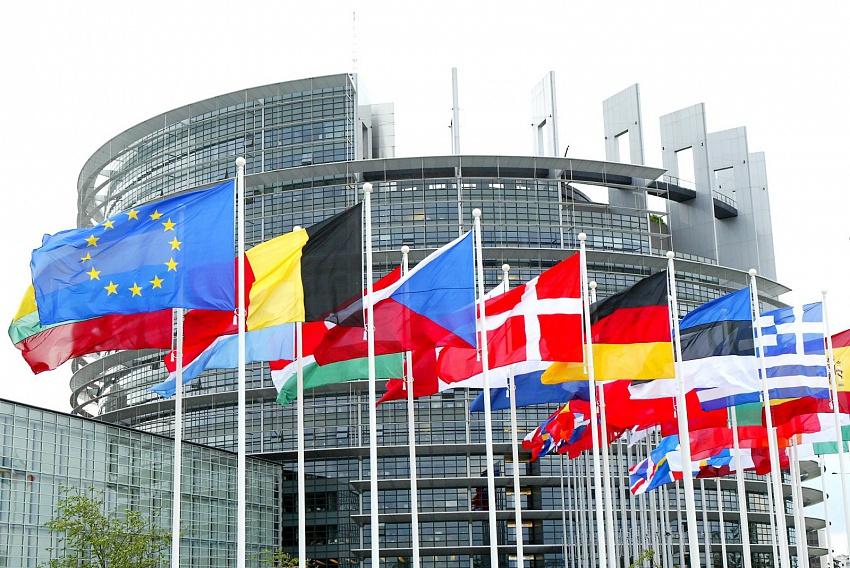Brussels’ recipe for militant democracy War on dissent?
Some of the most prominent Western media outlets have recently introduced a new term into the public discourse: “militant democracy.” Yes, democracy — now militant, no less. Quite something…
What does this actually mean? The phrase immediately brings to mind Leninist terms like “militant materialism” and “militant atheism.” One wonders whether Western philosophers and sociologists have started drawing inspiration from Lenin’s legacy.
Why not, really, if the proponents of “liberal democracy” are increasingly adopting practices where censorship and intolerance of alternative viewpoints are becoming an organic part of political life?
On the other hand, these same liberal democrats are quick to label any dissenting opinion — whether it comes from individuals, organisations, or even entire states — as “populism” or even “hostility” if it does not align with the official stance of the European Union’s leadership.

And so, the concept of “militant democracy” is being introduced into the Western media landscape — a notion whose core idea is that restrictions and prohibitions are not only acceptable but necessary to defend the democratic system.
This concept is being especially actively promoted against the backdrop of recent electoral gains by right-wing forces across Europe. At the same time, there is a deliberate attempt to portray their breakthrough not as the result of genuine voter support, but rather as a kind of technical fluke — the product of social media manipulation and “populist rhetoric.” Remarkable, to say the least...
When social media was used to fuel the “Arab Spring” or various “colour revolutions,” it was hailed as a genuine expression of democracy. Yet now, more than 20% of votes cast by German voters for the Alternative for Germany (AfD) party are suddenly deemed a dangerous manifestation of populism.
Western media readily amplify this narrative, framing it almost as a forced response by European leaders to so-called “external interference” — an alleged influence on voter behaviour that supposedly threatens “democratic values.”
Thus, we are witnessing an attempt to legitimise the defence of those very values — through restrictions, prohibitions, and mechanisms of censorship.

Once again, Lenin’s approach to democracy comes to mind, especially his tactic of identifying an external enemy as the starting point for justifying repression and curtailing freedoms. Today, EU leaders are resorting to the same method to excuse their own political missteps.
And yet, there’s nothing new here. We’ve already seen how Brussels has acted toward Hungary, whose attempts to defend its national interests provoked an openly — and without exaggeration — aggressive reaction. In blatant contradiction of its own principles, the European bureaucracy tried to undermine the consensus rule, effectively nullifying the very foundation of multilateral cooperation.
A similar pattern unfolded during the elections in Georgia, where democratic expression was met with harsh external criticism. Or in the case of Azerbaijan, which has repeatedly faced pressure — especially after the country restored its territorial integrity in accordance with international law. Yes, those efforts ultimately failed, including open calls to boycott COP29. But the fact of political pressure is undeniable. And it has been applied more than once.
In essence, these renewed calls for restrictions “in the name of democracy,” echoed through biased articles on major media platforms, are merely a continuation of an old and well-tested policy.
The paradox — or rather, the outright absurdity — lies in the fact that critics of right-wing forces have failed to offer any alternative agenda. Their political struggle has been confined to denouncing the platforms of their opponents, without making the slightest attempt to present their own programme addressing the real needs of the population.

Following the success of right-wing parties in Germany and Austria, we are now witnessing attempts to appropriate their ideas — to repackage and present them as part of the mainstream. Yet the very proponents of these ideas continue to be sidelined in coalition-building processes.
All of this unfolds against the backdrop of an obvious ideological crisis among the defeated. After all, without a substantive programme, one is doomed to political irrelevance.
The examples of Türkiye, Azerbaijan, and Hungary illustrate a key trend of our time: the states at the forefront today are those prioritising the defence of national interests — in politics, economics, culture, diplomacy, and security. And although external pressure and blackmail attempts persist, they continue to fail thanks to the internal unity of societies focused on realising a national vision.
Until Brussels acknowledges this reality, it will keep shuffling the definition of democracy, injecting it with ever-shifting interpretations — including, most recently, the concept of “militant democracy,” which, though still veiled, is already being embedded into the European agenda.








